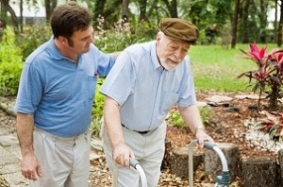
Human-aware sensors in the home could help the world’s growing population of older people continue to live independently while staying safe.
“This is becoming a significant problem for most developed countries where the proportion of older people is rapidly increasing and the labour market is tightening — there are more elderly people to be looked after but less people to do it,” said Michael Sheng, a senior lecturer at Australia’s University of Adelaide. “We are trying to solve this by developing a system using a network of sensors attached to objects that the person is interacting with in the home; using software to interpret the collected data to tell us what someone is doing.”
Computer scientists at the university who are taking part in the research hope to adapt radio-frequency identification (RFID) and sensor technologies to automatically identify and monitor human activity.
They aim to develop a system that’s low-cost and unobtrusive, and that doesn’t raise the privacy issues created by video surveillance. Their vision is technology that can make sure people are maintaining their normal routines and can request assistance if something out-of-the-ordinary is monitored.
Such an RFID sensor system wouldn’t require a person to wear or activate any device while being monitored.
While RFID technology is widely used for things like automatic toll-road payments and anti-shoplifting applications, its use for actual “people-watching” remains mostly in the laboratory today.
The researchers at the University of Adelaide hope to change that by building an RFID sensor network that can “recognize” human activity and developing an algorithm that can make sense of the activity data that’s gathered. The system would also require a context-aware and common-sense ability to “reason” so that potentially dangerous changes in activity can be identified and communicated to emergency responders.
The research team plans to test the system in the lab first, then run trials with geriatric patients in a hospital setting.
Source: greenbang.com






